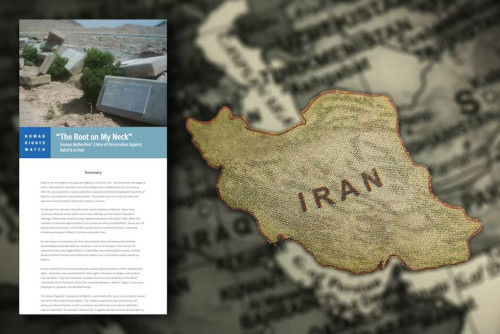The plight of Iran’s Baha’i community is well-documented. And there is a way for you to help. Facing systematic persecution in their homeland, many have sought refuge in neighboring countries like Turkey. However, for the approximately 2,000 Iranian Baha’is currently living there, the situation has become increasingly precarious.

Years in Limbo
Many of these Baha’is have been stuck in Turkey for years, some even exceeding a decade. Their hopes for resettlement have dimmed as referrals from the United Nations High Commissioner for Refugees (UNHCR) to the US Refugee Admissions Program (USRAP) have plummeted from hundreds to a mere 11 per year in the past two years.
This significant drop creates a dangerous backlog. Without proper resettlement opportunities, these vulnerable individuals remain exposed to potential deportation back to Iran, where they face the threat of renewed persecution.
Modern Day Struggles: Denial and Deprivation
Today, the estimated 300,000 Baha’is in Iran continue to face systematic discrimination. Their faith is not recognized by the state, making them invisible in official statistics. Baha’i businesses are often shut down, and their cemeteries are desecrated. The government’s narrative portrays them as a national security threat and a foreign-backed conspiracy.
Beyond Rhetoric: The Human Cost

The human cost of this persecution is staggering. Baha’is are routinely arrested and imprisoned on vague charges. In 2020, seven Baha’i leaders were sentenced to 10 years in prison each for simply managing the Baha’i community’s internal affairs. The constant fear of arrest and harassment creates a climate of anxiety and stifles social mobility for Baha’is.
International Appeals and Enduring Hope
The international community has repeatedly condemned Iran’s treatment of the Baha’is. The United Nations has passed numerous resolutions calling for an end to the persecution. Despite these pressures, the Iranian government shows no signs of relenting.
The Baha’is, however, remain a resilient community. They cling to their faith and continue to work for peace and social progress. Their plight serves as a stark reminder of the ongoing struggle for religious freedom in Iran and across the globe.
This is how you can help
Contact your US Senators and Congressional Representatives. The goal is to raise awareness of this critical situation and advocate for increased referrals of Iranian Baha’is in Turkey to the US Refugee Admissions Program (USRAP). The best way is a phone call. Talk directly to the office. Make your point and let them do the rest. Use these links to obtain the phone numbers for representatives and senators. If your state has a current House representative who is running for the US Senate contact them too and raise the issue.

Key Ideas to Express:
Referrals from the United Nations High Commissioner for Refugees (UNHCR) for Iranian Baha’is looking to relocate to any nation have sharply decreased, averaging just 11 per year over the last two years.
Due to the low referral rate, relocation is delayed considerably, endangering the security and stability of those involved.
According to US law and policy, Iranian Baha’is are entitled to priority status because of the documented persecution that they face. Now that the US Refugee Admissions Program (USRAP) is up and running, more referrals could effectively clear the backlog.




